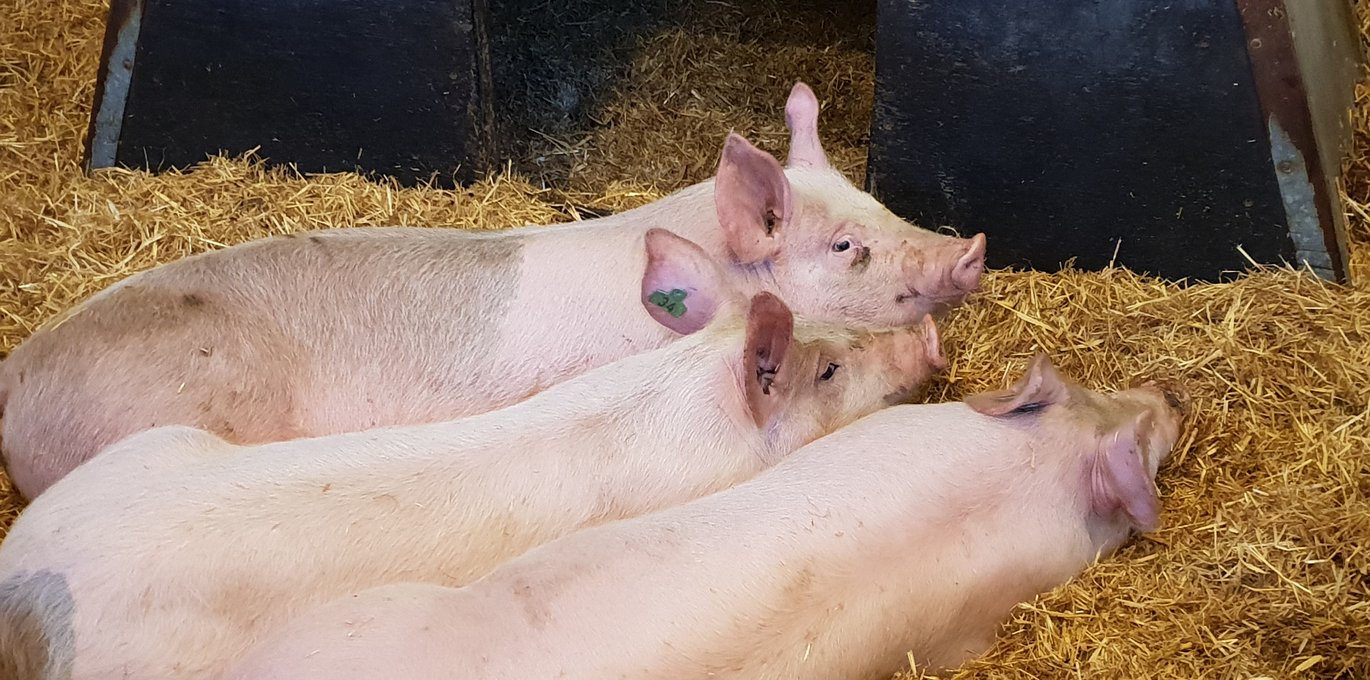The feed value of clover grass protein for slaughter pigs
The Organic RDD project "SuperGrassPork" is working on developing a production of local produced protein for organic pigs, where a big part of the protein feed comes from bio-refined clover grass.

The use of bio-refined protein feed, extracted from organic clover grass, is expected to become an important player in the organic pig production.
Partly by securing the supply of protein feed for the continuous increased production of organic pigs - and partly by minimising the emission of nitrogen by a better optimising of the pigs amino acid needs. Besides, it is expected that the higher part of clover grass in the crop rotation will improve the productivity in the field, the biodiversity and the content of carbon in the soil. The leaching of nutrients from the field will also be reduced.
Clover grass protein with 50 pct. raw protein content
The actual process of extracting the grass protein is taking place at the bio-refinery in Foulum, where an even bigger bio-refinery is being build during the next couple of months for production of grass protein.
An optimised bio-refining process has in the project led to a production of clover grass protein with a raw protein content of approximately 50 pct. This is expected to increase the digestibility of the protein significantly compared to previous studies - and thereby also increase the feed value.
The pigs have a great appetite and growth
In a feed study, it was examined, how the pigs endured the clover grass protein from weaning until the slaughtering. The feed study took place at AU-Foulum and was initiated in November 2018.
Three feed mixtures were examined in the study, where clover grass protein composed an increasing part of the feeds raw protein. These three mixtures were compared to a "test", which was combined as a traditional 100 pct. organic feed mixture. The pigs were being fed from weaning until the slaughtering, which took place in spring 2019. The feed mixture with the highest content of clover grass protein, (which the pigs got from 60 kilos and untill slaughtering), only contained danish produced raw material.
The study is proceeding as planned and the feeding part is completed. The pigs who got the clover grass mixture had a great appetite and growth, and we have not observed any health related issues.
Besides growth and feed utilisation we are studying the content of fatty acid and vitamins in both feed, meat and lard. Earlier studies of chickens have namely shown a certain correlation between a high level of unsaturated fatty acids and vitamins in the clover grass protein and the content in the chicken meat. Thereby the meat has a nutritional better fatty acid combination with the higher content of omega-3 fatty acids, but it might turn out to have an influence on the shelf life of the meat product.
The results were shown and tasted at Danish Crown in Herning d. 14. March 2019 Further, there will be made a more real determination of the meat and food quality through a add-on grant from the "Fonden for økologisk landbrug" for Margrethe Therkildsen from AU-FOOD.
The Organic RDD-projektet SuperGrassPork runs in 2017-2020. The project is a part of the Organic RDD 2-programme, which is coordinated by ICROFS (International Centre for Research in Organic Food Systems).
The funding support comes from the Green Development and Demonstration Programme (GUDP) under the Ministry of Environment and Food of Denmark.